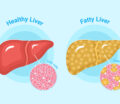
What are Gastrointestinal(GI) Cancers?
Gastrointestinal tract pertains to the part of the body which helps in digestion, assimilation and excretion of the eaten food materials. It starts from the esophagus, goes onto stomach, small intestine, large intestine, rectum and ends at anus(the anal opening or the excretory orifice). Its approximate length is 6 meters. It also involves other accessory organs which aid in digestion like, liver, gallbladder and biliary system and pancreas.
Gastrointestinal(GI) cancer is the term given to cancer affecting any of these organs.
What are the General features of GI Cancers?
Majority of these cancers are lifestyle related. They are the result of one or more lifestyle related problems such as
- Obesity
- Alcohol
- Smoking
So it implies that majority of these cancers can be prevented by adoption of healthy lifestyle.
These cancers are very much amenable to screening. Such as for colorectal cancers- Colonoscopy can be easily performed. Similarly in some countries like Japan there is screening program for esophageal and stomach cancers by the use of Upper GI Endoscopy.
Certain infections are known to cause cancers in the GI System like Hepatitis B and hepatitis C for liver cancer. These infections are treatable now and Hepatitis B infection is preventable by the use of vaccine available.
The risk of these cancers increases with age especially after 50 years of age. But recently the incidence is increasing rapidly in the younger age group. It may be lifestyle related or genetically modulated.
What are different GI Cancers?
The major types of cancers are
- Esophageal (food pipe) Cancer
- Stomach Cancer
- Colorectal Cancers
- Gallbladder cancer
- Pancreatic Cancer
- Liver Cancer
What are the symptoms of GI Cancers?
Unfortunately these cancers do not cause much symptoms early or cause symptoms which are easily ignored. The symptoms depend upon the location of the cancer. The major symptoms of GI Cancers are
- Abdominal Pain is a common feature for gallbladder and pancreatic cancer. Pain can be there in colonic cancers also.
- Esophageal cancers patients have difficulty in swallowing
- Stomach cancer patients have symptoms of indigestion or hyepracidityor vomiting after meals.
- Gallbladder cancer present with right upper abdominal pain and sometimes jaundice
- Pancreatic cancers can have pain and jaundice.
- Colorectal cancers present with either bleeding from anal orifice or recent onset constipation or black colored stools or sometimes even as appendicitis pain
- Loss of appetite and loss of weight
How are GI Cancers Diagnosed?
The diagnosis of the disease. If your doctor suspects GI cancer depending upon your symptoms he may advise one or more of the following investigations:
- Endoscopy to look for any change in the lining of the esophagus, stomach or early small intestine.
- Colonoscopy to check for polyps, cancers into the large intestine
- Imaging like CT scan, MRI, PET Scan depending upon the disease as prescribed by the doctor
- Biopsy of the lesions seen in during endoscopy or lesions seen on imaging as the case may be
- Blood Investigations involving routine blood tests and certain tumor markers like CEA, CA19-9 and others.
What is the treatment of GI Cancers?
The treatment of the GI Cancers involves surgery, chemotherapy and radiation being applied in different combinations. The treatment is dependent upon the clinical stage of the disease. If the tumor is early diagnosed surgery may be what all is needed. But in certain scenarios chemotherapy and radiation are required to be given before the surgery. Similarly chemotherapy and radiation may also be required after the surgery.
Surgery performed can be open or Laparoscopic (keyhole or Minimally Invasive). Surgery aims at complete removal of the tumor along with a margin of normal tissue and then restore the normal GI Function. For liver cancer transplantation is also possible in certain cases.






